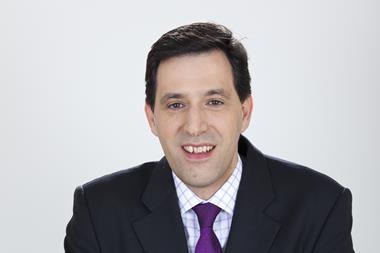Broker relations paramount to alleviating risks in the aviation sector – says Fraport’s Airport Assekuranz Vermittlungs-GmbH, Hans-Joerg Schill
The risks for the aviation sector are vast – changes in the economy, climate change and natural catastrophes, as well as technological advances – all pose risks to the sector. And managing them is a challenge.
The biggest concern for us is the economy and the potential of significant loss in customers. Some 70% of our business is with Lufhansa and Star Alliance. If the financial crisis worsens this could affect our business with them in particular.
It is difficult to manage the risks associated with the economy. Generally, responsibility lies with the chief executive and other board members rather than the risk manager or in-house broker. The chief executive and CFO will usually look for alternatives in their portfolio. Expanding foreign activities, for example, would be one way of reducing the impact of any financial crisis, meaning that the business is not dependent on revenue from one source. We run many airports worldwide and a big part of our earnings is from overseas business so we are not dependent on only one source of income.
Another risk is if natural catastrophes force authorities to close airports. Earthquakes are a major issue for us. I handle two airports that are prone to earthquakes, including Antalya in Turkey, and Lima in Peru. The biggest task is ensuring that we have sufficient cover, but at the moment the premium for natural catastrophe insurance is rising and insurers place limits on the amount that they will insure. Generally, lenders contracts, particularly around natural catastrophe coverage, stipulate that a business must insure the whole value – buildings as well as business interruption. If, for example, the total value is €500m, then insurers reduce their capacity to €300m or €250m. Terrorist attacks with nuclear bombs could also cause significant financial loss because generally insurance will only cover €1.5bn.
There are other risks that we are mindful of that could significantly impact upon our business. Cyber insurance products are improving, but the question over whether this is significant remains.
It is indeed a challenge to mitigate these risks, which is why it is paramount to have good communications across the board – not just with in-house departments but also with your insurers and brokers. We keep in contact with all departments so that they are up to speed with our risk prevention strategy, but also to ensure that relevant figures and detail around our risk mitigation plans are accurately communicated to insurers.
Keeping good relations with your overseas broker clients is just as important, especially where compliance is concerned. When we work in airports outside Germany we work closely with local brokers to ensure that we are legally compliant.
Lastly, it is advisable to identify your top risks and insure as far as possible keeping in mind deductibles related to insurance price.
Hans-Joerg Schill, managing director of Fraport’s in-house broker Airport Assekuranz Vermittlungs-GmbH (AAV)
Good broker relations is paramount to successful risk mitigation – but do risk managers often forget to involve brokers?: goo.gl/hWo015




















No comments yet